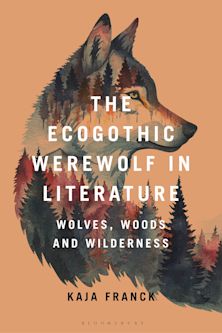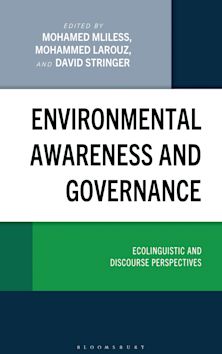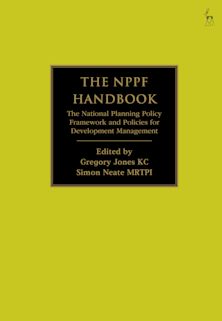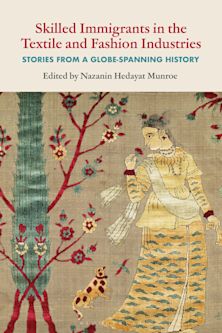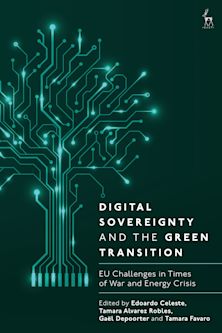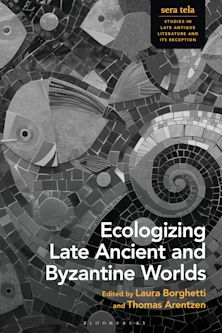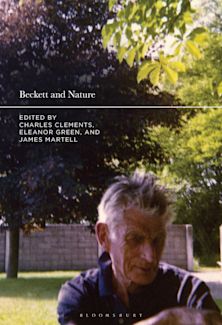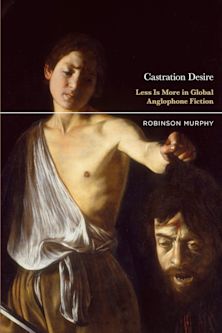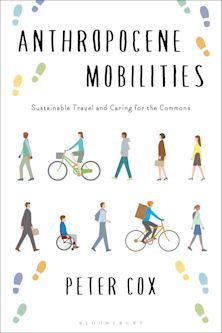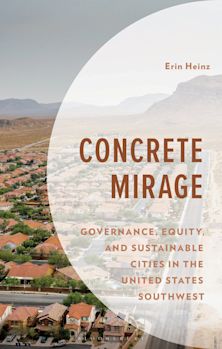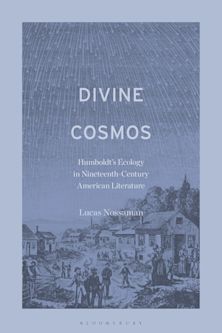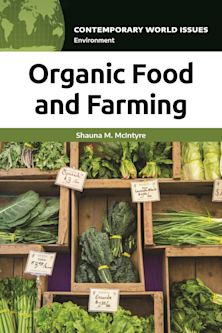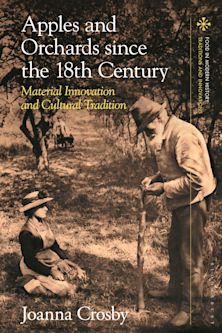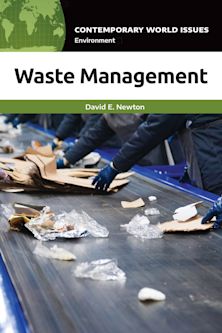- Home
- ACADEMIC
- Environmental Studies
- Communities and Conservation
Communities and Conservation
Histories and Politics of Community-Based Natural Resource Management
Peter J. Brosius (Anthology Editor) , Anna Lowenhaupt Tsing (Anthology Editor) , Charles Zerner (Anthology Editor) , Janis Alcorn (Contributor) , Grazia Borrini-Feyerabend (Contributor) , J Peter Brosius (Contributor) , Marcus Colchester (Contributor) , Walter Coward (Contributor) , Louise Fortmann (Contributor) , Augusto B. Gatmaytan (Contributor) , Emmy Hafild (Contributor) , Tania Li (Contributor) , Owen Lynch (Contributor) , Marshall Murphree (Contributor) , Rod Neumann (Contributor) , Peter Poole (Contributor) , Dianne Rocheleau (Contributor) , Richard Schroeder (Contributor) , Richard Chase Smith (Contributor) , Christopher Tarnowski (Contributor) , Roem Topatimasang (Contributor) , Anna Tsing (Contributor) , Ken Wilson (Contributor)
- Textbook
Communities and Conservation
Histories and Politics of Community-Based Natural Resource Management
Peter J. Brosius (Anthology Editor) , Anna Lowenhaupt Tsing (Anthology Editor) , Charles Zerner (Anthology Editor) , Janis Alcorn (Contributor) , Grazia Borrini-Feyerabend (Contributor) , J Peter Brosius (Contributor) , Marcus Colchester (Contributor) , Walter Coward (Contributor) , Louise Fortmann (Contributor) , Augusto B. Gatmaytan (Contributor) , Emmy Hafild (Contributor) , Tania Li (Contributor) , Owen Lynch (Contributor) , Marshall Murphree (Contributor) , Rod Neumann (Contributor) , Peter Poole (Contributor) , Dianne Rocheleau (Contributor) , Richard Schroeder (Contributor) , Richard Chase Smith (Contributor) , Christopher Tarnowski (Contributor) , Roem Topatimasang (Contributor) , Anna Tsing (Contributor) , Ken Wilson (Contributor)
- Textbook
Exam copy added to basket
Choose your preferred format. Please note ebook exam copies are fulfilled by VitalSource™.
Buy from Bloomsbury eTextBooks
You are now leaving the Bloomsbury Publishing website. Your eBook purchase will be with our partner https://www.vitalsource.com.
Your credit card statement will show this purchase originating from VitalSource Technologies. They will also provide any technical assistance you might require.
You must sign in to add this item to your wishlist. Please sign in or create an account
Description
The distinguished environmentalists in this collection offer an in-depth analysis and call to advocacy for community-based natural resource management (CBNRM). Their overview of this transnational movement reveals important links between environmental management and social justice agendas for sustainable use of resources by local communities. In this volume, leaders who have been instrumental in creating and shaping CBNRM describe their model programs; the countermapping movement and collective claims to land and resources; legal strategies for gaining rights to resources and territories; biodiversity conservation and land stabilization priorities; and environmental justice and minority rights. This book will be of value to instructors, practitioners and activists in anthropology, cultural geography, environmental justice, environmental policy, political ecology, indigenous rights, conservation biology, and CBNRM.
Table of Contents
2 Part 1: Mobilizations and Models
3 A. Institutional Mandates
4 Chapter 1: Dances Around the Fire: Conservation Organizations and Community-Based Natural Resource Management
5 Chapter 2: Participatory Democracy in Natural Resource Management: A "Columbus' Egg"?
6 Chapter 3: Building Models of Community-Based Natural Resource Management: A Personal Narrative
7 B. Defining Community in National and Transnational Contexts
8 Chapter 4: Congruent Objectives, Competing Interests and Strategic Compromise: Concept and Process in the Evolution of Zimbabwe's CAMPFIRE Programme
9 Chapter 5: Of Diffusion and Context: The Bubbling Up of Community-BasedResource Management in Mozambique
10 Chapter 6: Model, Panacea, or Exception?: Contextualizing CAMPFIRE and Related Programs in Africa
11 Chapter 7: What We Need is a Community Bambi: The Perils and Possibilities of Powerful Symbols
12 C. Empowerment or Coercion?
13 Chapter 8: Community, Forestry and Conditionality in the Gambia
14 Chapter 9: Can David and Goliath Have a Happy Marriage: The Machiguenga People and the Camisea Gas Project in the Peruvian Amazon
15 Chapter 10: Social Movements, Community-Based Natural Resource Management, and the Struggle for Democracy: Experiences from Indonesia
16 Part 2: Stealing the Master's Tools: Mapping and Law in Community-Based Natural Resource Management
17 A. Mapping against Power
18 Chapter 11: Maps, Power and the Defense of Territory: The Upper Mazaruni Land Claim in Guyana
19 Chapter 12: The Ye'kuana Mapping Project
20 Chapter 13: Maps as Power-Tools: Locating "Communities" in Space or Situating People and Ecologies in Place?
21 Chapter 14: Mapping as Tool for Community Organizing Against Power: A Moluccas Experience
22 B. Legal Strategies for the Disenfranchised
23 Chapter 15: Concepts and Strategies for Promoting Legal Recognition of Community-Based Property Rights: Insights from the Philippines and Other Nations
24 Chapter 16: Engaging Simplifications: Community-Based Natural Resource Management, Market Processes, and State Agendas in Upland Southeast Asia
25 Chapter 17: Advocacy as Translation: Notes on the Philippine Experience
26 INDEX
27 ABOUT THE AUTHORS
Product details
| Published | Jul 21 2005 |
|---|---|
| Format | Ebook (PDF) |
| Edition | 1st |
| Extent | 1 |
| ISBN | 9798216204633 |
| Imprint | AltaMira Press |
| Series | Globalization and the Environment |
| Publisher | Bloomsbury Publishing |
About the contributors
Reviews
-
This collection of original essays powerfully demonstrates the vital role communities can play in conserving nature and resources; it also clearly articulates the dangers community actors face in wresting a place at the negotiating table. Based on research in more than twelve countries, the volume provides a feast of real world insights into the transnational movement called community-based conservation. It is the starting point for anyone interested in the shifting landscape of debates on conservation.
Arun Agrawal, University of Michigan
-
Communities and Conservation is a solid effort to debate and document the historical development, political shape, and complexity of community-based natural resource management. It asks hard questions of all the actors involved in people and conservation issues. By challenging our understandings of social justice, cultural respect, and community, this book should be required reading for all conservation organizations, development institutions, and government agencies.
Thomas O. McShane, senior conservation advisor, World Wildlife Fund International
-
A unique and necessary volume. The editors perform a vital service in assembling this stellar cast from the scholarly, activist, and donor communities. The dialogue here is unprecedented and much-needed. This lively and engaging book is itself an example of the coalition-building the authors propose-a world-changing traffic of ideas and practices across geographical, political, and professional borders.
Hugh Raffles, University of California, Santa Cruz
-
Communities and Conservation provides a bracing challenge to advocates of both conservation of biodiversity and the rights of local peoples. The terrain of conflict and cooperation between these two communities has not been well mapped, and self-promoting arguments of elision, laden with shibboleths, are too common. If either side is to succeed, let alone if the numerous areas of agreement are to be achieved, questions such as raised in this perceptive, important book must be understood and addressed.
Kent H. Redford, Wildlife Conservation Society
-
The book speaks to a range of topics such as social movements, transnationalism, and environmentalism. For historians, anthropologists, sociologists, or political scientists interested in these issues, this book will be 'good to think with' due to its combination of rich case studies with nuanced theoretical insights. The origins and history of the transnational network explored here is not easily explained, and this book is as much an analysis and archive of its emergence, as it is about community-based natural resource management per se.
Comparative Studies in Society and History
-
Community is what Raymond Williams called a 'keyword', a sort of semantic building block whose meanings are bound up with the problems the word is being used to address. Communities and Conservation explores both the historical and institutional semantics of community and how community has become a building block-what they call a charismatic program-for the making of contemporary conservation and resource management. Residing within its institutional perimeters are subtle forms of rule, identity, discipline, and power, and also, as the authors show, the potential to challenge conventional models of governance and sustainable development. An indispensable collection for any understanding of the intersections of social justice and advocacy in the realm of natural resource management.
Michael Watts, director, Institute of International Studies, University of California, Berkeley











